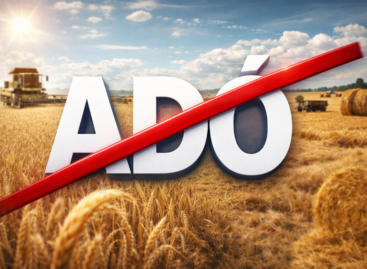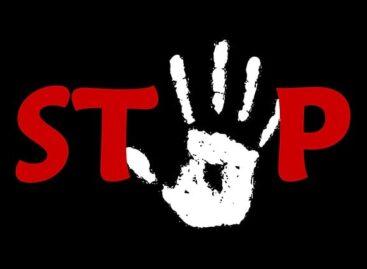NAV 2024: fewer inspections, more results − a new era in data-driven inspections
The yearbook summarizing the activities of the Hungarian Tax Authority in 2024 has been published, which shows that the tax authority is working with fewer but more targeted inspections, while its efficiency has increased dramatically. According to Deloitte experts, transfer pricing inspections, online trade and newly formed businesses can expect increased attention in 2025 and 2026.
 Thanks to the Online Invoice system, which records and transmits all invoices electronically to the tax authority, the economy has become significantly whiter, however, 90 percent of the findings of the Hungarian Tax Authority were still related to VAT. The system allows the tax authority to see economic events almost live, so VAT abuses can be quickly identified.
Thanks to the Online Invoice system, which records and transmits all invoices electronically to the tax authority, the economy has become significantly whiter, however, 90 percent of the findings of the Hungarian Tax Authority were still related to VAT. The system allows the tax authority to see economic events almost live, so VAT abuses can be quickly identified.
Two factors certainly turn on a “red light” in NAV’s systems: if tax returns are not in line with online data, and if turnover increases extremely.
The transition from KATA did not go smoothly in 2024. The tax authority conducted targeted inspections of those affected more than 300 times and uncovered 161 million forints of missing taxes. These inspections are expected to continue in the near future until the end of the transition.
The yearbook also pointed out that many people are not properly familiar with the tax rules related to real estate sales: the Tax Authority collected more than 1 billion forints in taxes and a similar amount of fines from those who failed to file a return.
The inspection of the largest taxpayers continued to be the focus of the authority. The Tax Authority found some kind of irregularity in three-quarters of them, while efficiency improved significantly: the number of inspections remained almost unchanged, but one and a half times more unpaid taxes were detected than in 2023.
Transfer pricing inspections and new trends in large companies
Transfer pricing inspections of multinational companies received special emphasis in 2024. The Tax Authority investigated whether companies belonging to the same group of companies were settling their accounts at the appropriate market price. Efficiency improved dramatically: with an almost identical number of inspections to the previous year, they found 8 billion forints in missing taxes, instead of 3.3 billion forints.
The authority was also active in the manufacturing sector: five inspections of companies with losses or low profits revealed a deficit of 1.1 billion forints. A new trend is that not only VAT irregularities but also pricing problems within the corporate group are becoming more common in large companies.
“Transfer pricing is one of the most complex areas where NAV now uses explicitly data-driven methods. According to our experience, the authority is increasingly analyzing the profit distribution within corporate groups and the relationship to market prices, so companies should place greater emphasis on the actual economic content in addition to documentation.”
– said Ákos Balázsi, a lawyer in the legal disputes and litigation group at Deloitte Legal.
New methods: mapping advisory relationships and seizing cryptocurrencies
In 2024, NAV launched a new project for accountants and to map the clientele of tax advisors. The authority has identified which businesses use the work of the same service providers, although the yearbook does not yet detail the results.
In a true 21st century twist, the Tax and Customs Administration seized a total of $224,000 (about 80 million forints) worth of cryptocurrency in four criminal cases. According to Deloitte experts, this is a milestone, as digital assets were previously difficult for authorities to access.
“Cryptocurrency transactions are no longer invisible to authorities. With the expansion of international automatic exchange of information, NAV could gain global visibility into digital transactions within a few years, which could usher in a new era in tax audits.”
– said Dávid Ramocsa, a lawyer in the legal disputes and litigation group at Deloitte Legal.
Fewer, more targeted inspections – cooperation at the forefront
More than 90 percent of the 146,000 inspections carried out were compliance inspections, where NAV primarily collects information rather than immediately punishes. These often prepare for a later, comprehensive inspection. The authority’s approach is changing: it increasingly supports taxpayers and encourages independent improvement. Penalties are only imposed in the case of more serious problems, but in this case a fine of up to 200 percent can be applied.
Court success and payment facilitations
NAV’s professional performance is clearly demonstrated by the fact that it won 82 percent of cases at first instance and 77 percent before the Curia. Interestingly, however, only 55 percent and 5 percent of the legal costs, respectively, were paid.
Related news
Tax and administrative burdens for farmers to be reduced from January 1
🎧 Hallgasd a cikket: Lejátszás Szünet Folytatás Leállítás Nyelv: Auto…
Read more >Not a marginal phenomenon: counterfeiting has become a systemic problem in Hungary
🎧 Hallgasd a cikket: Lejátszás Szünet Folytatás Leállítás Nyelv: Auto…
Read more >NAV: Financial inspectors found fake fan products sold as replicas
🎧 Hallgasd a cikket: Lejátszás Szünet Folytatás Leállítás Nyelv: Auto…
Read more >Related news
Farmers protesting against the EU-Mercosur agreement block several highways in Belgium
🎧 Hallgasd a cikket: Lejátszás Szünet Folytatás Leállítás Nyelv: Auto…
Read more >Innovative seed treatment solution being developed at the University of Szeged
🎧 Hallgasd a cikket: Lejátszás Szünet Folytatás Leállítás Nyelv: Auto…
Read more >Thousands of farmers protest in Warsaw against Mercosur agreement
🎧 Hallgasd a cikket: Lejátszás Szünet Folytatás Leállítás Nyelv: Auto…
Read more >






